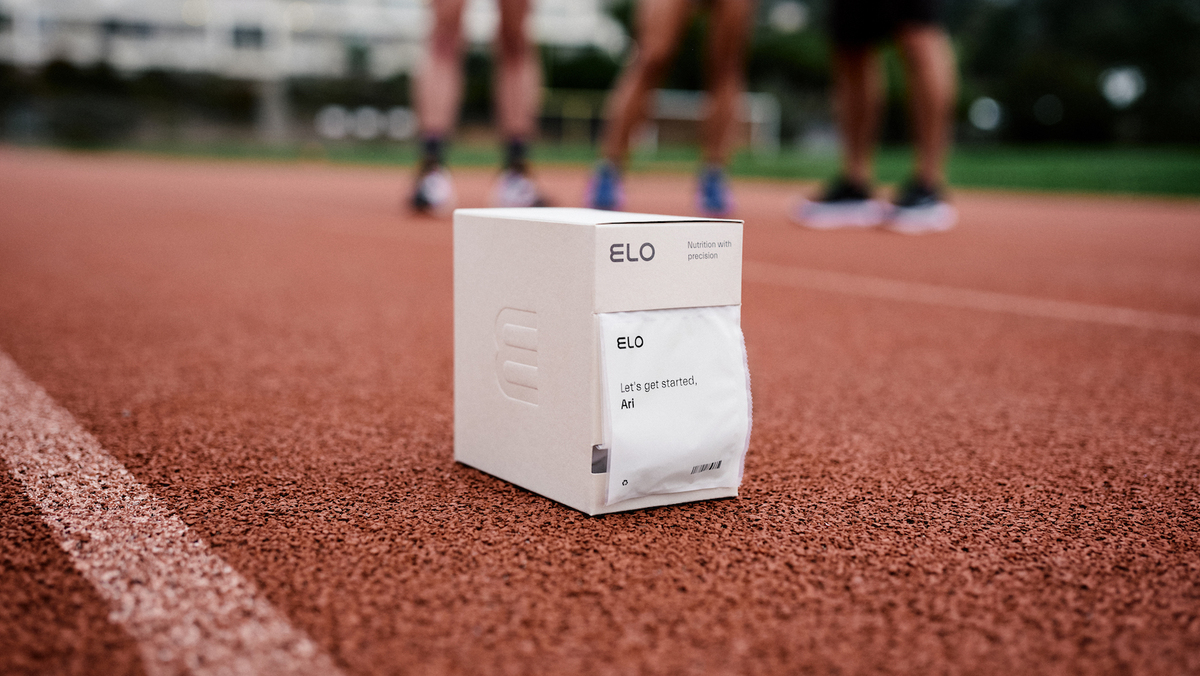Home>Misc>Featured>What Supplements Do You Need For Distance Running


Featured
What Supplements Do You Need For Distance Running
Modified: January 2, 2024
Discover the featured supplements you need for optimal performance in distance running, including essential nutrients and recovery aids. Enhance your training and stay at the top of your game.
Introduction
Welcome to the world of distance running, where the thrill of conquering long distances and pushing your physical limits is unparalleled. Whether you are a seasoned marathoner or a novice runner training for your first half marathon, one thing is certain – the importance of supplements for distance running should not be underestimated.
As a distance runner, your body undergoes rigorous training and demands increased endurance, strength, and recovery. While a well-rounded diet should provide most of the necessary nutrients, incorporating targeted supplements can help optimize performance, prevent deficiencies, and promote overall well-being.
In this article, we will explore the essential supplements to consider for distance running. From vitamins and minerals to protein supplements, omega-3 fatty acids, electrolyte replenishment, carbohydrate supplements, pre-workout boosters, and post-workout recovery aids, we’ll cover it all. So, lace up your running shoes and let’s dive into the world of supplements that can take your running to the next level.
Before we delve into the specifics, it’s important to note that supplements are not a magic pill that will instantly transform your running abilities. They should be viewed as complementary to a well-balanced diet and a consistent training regimen. Consulting with a healthcare professional or a registered dietitian is highly recommended to ensure that the supplements you choose are suitable for your individual needs and goals.
Now, let’s explore the various categories of supplements that can support your distance running journey and help you achieve your running goals.
Importance of Supplements for Distance Running
Distance running places significant demands on the body, both in terms of endurance and recovery. By incorporating supplements into your training routine, you can enhance your performance, support optimal muscle function, and promote overall well-being. Let’s take a closer look at the importance of supplements for distance running.
First and foremost, supplements can fill any nutritional gaps that may be present in your diet. Distance runners require a higher intake of certain vitamins and minerals to support energy production, muscle function, and immune health. However, it can be challenging to meet these increased requirements solely through food. Supplements can provide an added layer of assurance, helping you meet your nutritional needs.
In addition to filling nutritional gaps, supplements can also improve performance and aid in recovery. For example, protein supplements can support muscle repair and growth, reducing the risk of injury and promoting faster recovery between training sessions. Omega-3 fatty acids, known for their anti-inflammatory properties, can help reduce exercise-induced inflammation and support joint health, allowing you to stay on top of your training game.
Electrolyte replenishment is crucial during distance running, especially in hot and humid conditions where sweat loss is high. Electrolyte supplements can help maintain proper hydration levels, replenish essential minerals lost through sweat, and prevent muscle cramps and fatigue during prolonged exercise sessions.
Carbohydrate supplements, such as energy gels or sports drinks, can provide an immediate source of fuel during long-distance runs. They can help maintain glycogen levels in the muscles, delay fatigue, and sustain energy levels throughout the run. Pre-workout supplements, on the other hand, can enhance focus, increase energy levels, and improve endurance, allowing you to push through challenging training sessions.
Post-workout recovery supplements play a vital role in aiding muscle repair and replenishing energy stores. They typically contain a combination of protein and carbohydrates, facilitating muscle recovery and optimizing glycogen replenishment. Including these supplements as part of your post-workout routine can reduce muscle soreness, speed up recovery, and prepare your body for the next training session.
While supplements can provide numerous benefits for distance runners, it’s essential to approach them with caution and choose high-quality products. Look for supplements that are third-party tested, certified, and free from any banned substances. Additionally, remember that supplements are not a substitute for a well-balanced diet and proper training. They should be used in conjunction with healthy lifestyle habits and individualized training programs to maximize their potential benefits.
Now that we’ve explored the importance of supplements for distance running, let’s dive into the specific supplements that can support your journey and help you reach your running goals.
Essential Vitamins and Minerals
When it comes to distance running, certain vitamins and minerals play a crucial role in supporting performance, recovery, and overall health. Let’s explore some of the essential vitamins and minerals that should be on a distance runner’s radar.
1. Vitamin B Complex: The B vitamins, including B1 (thiamine), B2 (riboflavin), B3 (niacin), B5 (pantothenic acid), B6 (pyridoxine), B7 (biotin), B9 (folate), and B12 (cobalamin), are involved in energy metabolism and play a key role in converting food into fuel. They also support nervous system function and red blood cell production, both of which are vital for endurance and performance.
2. Vitamin C: Vitamin C is known for its immune-boosting properties, but it also serves other important functions for distance runners. It acts as an antioxidant, helping to protect against exercise-induced oxidative stress and supporting collagen synthesis, which is essential for maintaining healthy connective tissues and reducing the risk of injuries.
3. Iron: Iron is crucial for endurance athletes as it plays a critical role in oxygen transportation and energy production. Low iron levels can lead to fatigue, decreased performance, and impaired immune function. It is especially important for female distance runners, as they are at a higher risk of iron deficiency due to menstrual blood loss.
4. Calcium and Vitamin D: Calcium and vitamin D work synergistically to support bone health and minimize the risk of stress fractures, which are common among distance runners. Calcium is essential for bone strength, while vitamin D helps with calcium absorption. Adequate intake of both is necessary to maintain strong and healthy bones.
5. Magnesium: Magnesium is involved in over 300 enzymatic reactions in the body, including muscle contractions and energy metabolism. It plays a crucial role in muscle function and can help prevent muscle cramps and spasms often experienced during long-distance runs.
6. Zinc: Zinc is involved in immune function, protein synthesis, and cellular repair, all of which are important for distance runners. It supports a healthy immune system, helps with muscle recovery, and can contribute to improved performance.
While it is possible to obtain these essential vitamins and minerals through a well-balanced diet, distance runners may benefit from supplementing their intake to ensure adequate levels. Before starting any supplementation regimen, consult with a healthcare professional to determine the appropriate dosage and to address any specific needs or deficiencies you may have.
Incorporating these important vitamins and minerals into your training plan can help maintain optimal health, support performance, and aid in recovery as you tackle those long miles.
Protein Supplements
Protein is an essential nutrient for distance runners as it plays a vital role in muscle repair, growth, and recovery. While getting enough protein from whole food sources is crucial, protein supplements can be a convenient and efficient way to meet your daily protein needs. Let’s explore the benefits and considerations of incorporating protein supplements into your distance running routine.
Benefits of Protein Supplements:
1. Muscle Repair and Recovery: Distance running places significant stress on the muscles, leading to muscle damage. Protein supplements can provide a readily available source of amino acids, the building blocks of protein, which support muscle repair and recovery. Consuming protein shortly after a workout or long run can enhance the muscle recovery process and reduce muscle soreness.
2. Convenient and Portable: Protein supplements, such as protein powders or bars, are convenient for distance runners who are often on the go or have busy schedules. They can be easily carried in a gym bag or backpack, providing a quick and easy protein source post-workout or during the day to meet nutrition goals.
3. Variety of Options: Protein supplements come in different forms, flavors, and types of protein sources. Whether you prefer whey protein, plant-based proteins like pea or soy protein, or even collagen protein, there are plenty of options to suit individual preferences and dietary restrictions.
Considerations for Protein Supplements:
1. Protein Needs: It’s important to determine your individual protein needs based on factors such as body weight, training intensity, and goals. Aim for a range of 0.7 to 1 gram of protein per pound of body weight per day. Protein supplements should be used to complement a well-rounded, protein-rich diet rather than replace whole food sources of protein.
2. Quality and Purity: When selecting a protein supplement, look for products that are third-party tested for quality and purity. Choose a reputable brand that provides transparency about their sourcing and manufacturing processes. This ensures that you are consuming a high-quality product without any harmful additives or contaminants.
3. Timing of Consumption: Timing is key when it comes to protein supplementation. Consuming protein within an hour of completing a long run or workout can maximize the muscle recovery process. This window of opportunity allows the muscles to absorb and utilize the amino acids for repair and growth.
4. Individual Tolerance and Digestibility: It’s important to consider your own tolerance and digestibility when selecting protein supplements. Some individuals may experience digestive discomfort with certain protein sources. Experiment with different types of protein supplements to find one that suits your body and preferences.
5. Whole Food Sources: While protein supplements can be convenient, it’s important to prioritize whole food sources of protein in your diet. Lean meats, fish, eggs, dairy products, legumes, and nuts are all excellent sources of protein that provide a wide range of essential nutrients and promote overall health.
Remember, protein supplements should be viewed as a supplement to a well-balanced diet, not as a replacement for whole foods. They can be a valuable tool for distance runners to support muscle recovery, but it’s essential to use them in conjunction with a nutritious diet and proper training to maximize their benefits.
Omega-3 Fatty Acids
Omega-3 fatty acids are a type of essential fats that play a crucial role in supporting overall health and well-being. These fats are particularly beneficial for distance runners due to their anti-inflammatory properties and their impact on joint health, recovery, and cardiovascular function. Let’s explore the importance of omega-3 fatty acids and how they can benefit your distance running journey.
The Benefits of Omega-3 Fatty Acids:
1. Reduced Inflammation: Long-distance running can cause inflammation in the body, leading to muscle soreness and increased recovery time. Omega-3 fatty acids, specifically EPA (eicosapentaenoic acid) and DHA (docosahexaenoic acid), have been shown to reduce inflammation and alleviate exercise-induced muscle soreness. By incorporating omega-3s into your diet, you may experience faster recovery and improved performance.
2. Joint Health: Distance running puts stress on your joints, which can lead to wear and tear over time. Omega-3 fatty acids have been shown to reduce joint pain and stiffness, providing support for joint health. By reducing inflammation in the joints, omega-3s can help you maintain optimal joint function and mobility throughout your running career.
3. Cardiovascular Support: Endurance exercise places significant demand on the cardiovascular system. Omega-3 fatty acids have been linked to improved cardiovascular health, including reduced blood pressure, decreased triglyceride levels, and improved blood vessel function. By supporting heart health and circulation, omega-3s can enhance endurance and cardiovascular performance in distance runners.
Incorporating Omega-3 Fatty Acids into Your Diet:
The primary dietary sources of omega-3 fatty acids are fatty fish, such as salmon, mackerel, tuna, and sardines. These fish are rich in EPA and DHA, the most beneficial types of omega-3s. Aim to include fatty fish in your diet at least twice a week to obtain an adequate intake of omega-3s.
If you are a vegetarian or vegan, you can still obtain omega-3 fatty acids through plant-based sources. Flaxseeds, chia seeds, hemp seeds, and walnuts are all excellent sources of alpha-linolenic acid (ALA), a type of omega-3 fatty acid that can be converted into EPA and DHA in the body, although the conversion is not as efficient as obtaining EPA and DHA directly from fish sources.
If you find it challenging to consume enough omega-3s through whole food sources, you may consider incorporating an omega-3 supplement derived from fish oil or algae. It’s important to choose high-quality supplements that are purified and third-party tested to ensure purity and safety.
Consult with a healthcare professional or registered dietitian to determine the appropriate dosage of omega-3 supplements for your individual needs and to address any specific dietary restrictions or considerations.
By incorporating omega-3 fatty acids into your diet, whether through whole foods or supplements, you can support your distance running performance, reduce inflammation, promote joint health, and support overall cardiovascular well-being.
Electrolyte Replenishment
Electrolytes are essential minerals that play a crucial role in maintaining proper hydration and supporting various bodily functions. When distance running, especially in hot and humid conditions or during prolonged exercise sessions, you lose electrolytes through sweat. Replenishing these electrolytes is vital to avoid dehydration, muscle cramps, and fatigue. Let’s explore the importance of electrolyte replenishment and how it can enhance your distance running performance.
Key Electrolytes for Distance Runners:
1. Sodium: Sodium is the most abundant electrolyte lost through sweat. It plays a vital role in maintaining fluid balance, nerve function, and muscle contractions. Without sufficient sodium levels, you may experience muscle cramps, impaired performance, and an increased risk of dehydration. Electrolyte drinks or salt capsules can help replenish sodium levels during long runs or intense training sessions.
2. Potassium: Potassium is another essential electrolyte involved in fluid balance, nerve function, and muscle contractions. Adequate potassium levels help prevent muscle cramps and promote proper muscle function during distance running. Good food sources of potassium include bananas, avocados, sweet potatoes, and coconut water.
3. Magnesium: Magnesium is necessary for maintaining proper muscle function, energy production, and electrolyte balance. Low magnesium levels can contribute to muscle cramps and fatigue. Incorporating magnesium-rich foods like leafy greens, nuts, and seeds can help replenish magnesium stores in the body.
4. Calcium: Although calcium is primarily known for its role in bone health, it is also an essential electrolyte involved in muscle contractions, nerve signaling, and fluid balance. Ensuring adequate calcium intake through dairy products, fortified plant-based milk, or calcium-rich foods can support proper muscle function during distance running.
Replenishing Electrolytes:
During distance running, especially in hot and humid conditions or for runs lasting longer than one hour, incorporating electrolyte-replenishing strategies is crucial. Here are some tips to replenish electrolytes during and after your runs:
1. Hydration: Proper hydration is the foundation of electrolyte balance. Drink fluids that contain electrolytes, such as sports drinks or electrolyte-enhanced water, during your run to replace fluids and replenish essential minerals lost through sweat.
2. Electrolyte Supplements and Foods: Consider using electrolyte supplements, such as tablets, powders, or gels, to replenish sodium, potassium, and other essential electrolytes during long runs. Additionally, incorporating electrolyte-rich foods, like fruits, vegetables, and electrolyte-enhanced snacks, can contribute to electrolyte replenishment.
3. Salt Capsules: For endurance events or prolonged exercise, salt capsules can be a convenient way to replenish sodium levels. These capsules provide a quick source of sodium without the added sugars or calories found in many sports drinks.
Remember to listen to your body and adjust electrolyte replenishment strategies based on your individual needs and preferences. Consult with a healthcare professional to determine the appropriate electrolyte replacement plan for your specific training requirements.
By replenishing electrolytes during and after your distance runs, you can maintain proper hydration, support muscle function, prevent cramps, and sustain performance throughout your training and races.
Carbohydrate Supplements
Carbohydrates are the primary source of fuel for distance runners as they provide the energy needed to power through long runs and races. While a well-balanced diet should provide sufficient carbohydrates, there are situations where carbohydrate supplements can be beneficial. Let’s explore the importance of carbohydrate supplements for distance runners and how they can enhance performance and endurance.
The Role of Carbohydrates in Distance Running:
Carbohydrates are stored in the muscles and liver as glycogen and are the body’s preferred source of energy during endurance exercise. As you engage in distance running, your glycogen stores become depleted, leading to fatigue and a decline in performance. Consuming carbohydrates before, during, and after your runs helps replenish these stores and provides a steady stream of energy.
Benefits of Carbohydrate Supplements:
1. Immediate Fuel: Carbohydrate supplements, such as energy gels, chews, or sports drinks, provide a quick and easily digestible source of carbohydrates. These supplements deliver readily available fuel to your muscles, helping to delay fatigue and sustain energy levels during long runs or races.
2. Convenient and Portable: Carbohydrate supplements come in convenient packaging, making them easy to carry and consume on the go. This is particularly beneficial during races or training runs where stopping to eat whole foods may not be practical. They can be conveniently tucked into a pocket or hydration belt, allowing for quick and easy access during your run.
3. Customizable Energy Intake: Carbohydrate supplements come in different forms and flavors, allowing you to tailor your energy intake to your specific needs. You can easily adjust the amount of carbohydrates consumed based on the intensity and duration of your run. This flexibility enables you to fine-tune your fueling strategy and optimize your performance.
Considerations for Carbohydrate Supplements:
1. Timing: The timing of carbohydrate consumption is crucial for maximizing the benefits of supplementation. Consuming carbohydrates before your run provides a source of fuel for immediate use, while consuming them during longer runs helps maintain energy levels. After your run, incorporating carbohydrates into your post-workout recovery routine helps replenish glycogen stores and support muscle recovery.
2. Individual Tolerance: It’s important to experiment with different carbohydrate supplements during training to find the ones that work best for you. Some runners may find that certain types or brands of supplements cause gastrointestinal discomfort or are not well-tolerated during exercise. Finding products that are easily digestible and agreeable to your stomach is key for optimal fueling strategies.
3. Hydration: Carbohydrate supplements may also contribute to hydration, as many energy gels and drinks contain water and electrolytes. However, it’s essential to maintain a proper hydration strategy alongside carbohydrate consumption. Make sure to drink sufficient fluids to prevent dehydration and ensure that your body can effectively utilize the carbohydrates consumed.
While carbohydrate supplements can be a valuable tool for distance runners, it’s important to remember that they should complement a well-balanced diet rich in carbohydrates from whole food sources. Whole grains, fruits, vegetables, and legumes should remain the foundation of your carbohydrate intake. Carbohydrate supplements should be used strategically during long runs, races, or intense training sessions to enhance performance and support endurance.
Consult with a healthcare professional or registered dietitian to determine the most appropriate carbohydrate supplements and fueling strategies for your individual needs and goals as a distance runner.
Pre-Workout Supplements
Preparing your body for a distance running workout or race requires not only proper training but also optimal nutrition. Pre-workout supplements can play a beneficial role in enhancing energy levels, focus, and endurance during your training sessions. Let’s explore the benefits and considerations of incorporating pre-workout supplements into your distance running routine.
The Benefits of Pre-Workout Supplements:
1. Increased Energy: Pre-workout supplements often contain ingredients such as caffeine, B vitamins, and amino acids that can boost energy levels and improve overall alertness. These supplements can provide the extra push you need to tackle intense and demanding workouts, especially early morning or high-intensity sessions.
2. Enhanced Focus and Mental Clarity: Distance running requires mental resilience and focus. Some pre-workout supplements contain ingredients like caffeine, tyrosine, or rhodiola rosea, which can promote mental alertness and enhance concentration. These benefits can be particularly helpful when facing long training runs or during challenging speed workouts.
3. Improved Endurance: Pre-workout supplements may contain ingredients like beta-alanine, citrulline malate, or nitric oxide boosters that can enhance blood flow, delay fatigue, and improve endurance. These supplements can help you push through tough training sessions, maintain a faster pace, and extend your distance running capacity.
Considerations for Pre-Workout Supplements:
1. Ingredient Transparency: It’s important to choose pre-workout supplements from reputable brands that provide transparency about their ingredient profiles. Look for products that are third-party tested and do not contain any banned or unsafe substances. Avoid supplements with excessive amounts of stimulants or ingredients that you may be sensitive to.
2. Personal Sensitivity and Tolerance: Each individual may respond differently to pre-workout supplements due to variations in tolerance and sensitivity to certain ingredients. Start with a lower dosage and gradually increase if needed. Be mindful of potential side effects such as jitters, racing heartbeat, or sleep disturbances. It’s always a good idea to consult with a healthcare professional or registered dietitian before starting any new supplement regimen.
3. Timing and Dosage: The timing of pre-workout supplement consumption is crucial for maximizing their benefits. It’s recommended to take pre-workout supplements approximately 30 to 45 minutes before your workout session to allow enough time for the ingredients to enter your system and take effect. Start with the recommended dosage and adjust as needed based on your personal response and goals.
4. Balanced Nutrition: While pre-workout supplements can provide a boost, it’s important to remember that they should not replace a well-rounded diet. Focus on consuming a balanced meal or snack that includes carbohydrates, protein, and healthy fats to provide sustained energy and necessary nutrients along with your pre-workout supplement.
5. Individualized Approach: Every runner’s nutrition needs and goals are unique. What works well for one person may not work as effectively for another. Experiment with different pre-workout supplements and assess how they contribute to your performance and overall well-being. Customize your approach to find the optimal pre-workout supplement and timing that works best for you.
Pre-workout supplements can be a valuable tool to enhance energy, focus, and endurance during your distance running workouts. However, it’s important to use them mindfully, in combination with a well-rounded diet, adequate hydration, and appropriate training strategies, for optimal performance and overall health.
Post-Workout Recovery Supplements
The post-workout period is a critical time for distance runners as it provides an opportunity to optimize recovery, repair muscle damage, and replenish energy stores. Incorporating post-workout recovery supplements into your routine can help accelerate muscle recovery, reduce muscle soreness, and prepare your body for future training sessions. Let’s explore the benefits and considerations of post-workout recovery supplements for distance runners.
The Benefits of Post-Workout Recovery Supplements:
1. Muscle Repair and Recovery: Post-workout recovery supplements typically contain a combination of carbohydrates and protein. Carbohydrates help replenish glycogen stores, while protein supports muscle repair and growth. Consuming the right ratio of carbohydrates to protein post-workout can enhance recovery, reduce muscle damage, and promote muscle protein synthesis.
2. Reduced Muscle Soreness: Intense distance running workouts can lead to muscle soreness and inflammation. Post-workout recovery supplements that contain anti-inflammatory ingredients such as tart cherry extract or turmeric can help reduce exercise-induced muscle damage and alleviate post-workout soreness, allowing you to bounce back faster.
3. Improved Hydration: Hydration is crucial for optimal recovery. Some post-workout recovery supplements contain electrolytes, such as sodium and potassium, which help replenish lost fluids and maintain electrolyte balance. Ensuring proper hydration alongside your post-workout supplement supports muscle function, nutrient delivery, and overall recovery.
Considerations for Post-Workout Recovery Supplements:
1. Quality and Composition: When selecting a post-workout recovery supplement, focus on high-quality products that provide the right ratio of carbohydrates and protein to support your recovery needs. Look for supplements that are third-party tested, free from artificial additives or fillers, and contain a good source of complete protein.
2. Timing: The timing of your post-workout recovery supplement is crucial for maximizing its benefits. Aim to consume your supplement within 30 to 60 minutes after your workout to replenish glycogen stores and jumpstart the muscle repair process. This window of opportunity allows your body to efficiently utilize the nutrients provided.
3. Individual Needs and Preferences: Every runner’s recovery needs and preferences may differ. Experiment with different post-workout recovery supplements to find the one that works best for you in terms of taste, digestibility, and effectiveness. Consider any dietary restrictions or allergies when selecting your supplement.
4. Whole Food Options: While post-workout recovery supplements can be convenient and effective, whole food sources should still be prioritized. Consuming a balanced meal or snack that includes complex carbohydrates, lean protein, and vegetables can provide additional nutrients and support overall recovery. Supplements should be viewed as a complement to a well-rounded diet, not a replacement for real food.
5. Professional Guidance: If you have specific recovery needs or seek professional advice, consulting with a registered dietitian or sports nutritionist can be beneficial. They can help assess your individual needs, recommend suitable recovery supplements, and guide you in developing a personalized post-workout nutrition plan.
Post-workout recovery supplements can be a valuable tool for distance runners to optimize recovery and performance. However, it’s important to remember that proper nutrition, hydration, and rest are equally important components of an effective recovery plan. Use post-workout recovery supplements in conjunction with a well-balanced diet and smart training strategies to maximize their benefits and support your distance running goals.
Conclusion
As a distance runner, incorporating supplements into your training and recovery routine can provide numerous benefits. From essential vitamins and minerals to protein supplements, omega-3 fatty acids, electrolyte replenishment, carbohydrate supplements, pre-workout boosters, and post-workout recovery aids, there are a variety of options available to support your performance and overall well-being.
Supplements can help fill nutritional gaps, enhance muscle repair and recovery, reduce inflammation, optimize hydration and energy levels, improve focus, and support overall endurance. However, it’s important to approach supplementation with caution and consider individual needs, goals, and preferences.
Remember, supplements should never replace a well-balanced diet and proper training. It’s essential to prioritize whole food sources of nutrients and fuel your body with a variety of fruits, vegetables, lean proteins, whole grains, and healthy fats. A solid foundation of proper nutrition, adequate hydration, and quality sleep should always come first.
Consulting with a healthcare professional, registered dietitian, or sports nutritionist can help guide you in selecting the right supplements for your individual needs and goals. They can assess your specific nutrient requirements, address any deficiencies or imbalances, and help you develop a well-rounded supplement plan.
Additionally, it’s important to choose high-quality supplements from reputable brands that undergo third-party testing for quality, purity, and safety. Reading labels, understanding ingredient profiles, and being mindful of potential side effects or allergies are all crucial steps in making informed choices.
By incorporating targeted supplements into your distance running routine, you can optimize your performance, support your body’s needs, and enhance your overall running experience. Remember to listen to your body, experiment with different supplements and strategies, and make adjustments as necessary.
So lace up your running shoes, fuel your body wisely, and enjoy the journey as you conquer new distances and achieve your distance running goals with the help of supplements.









